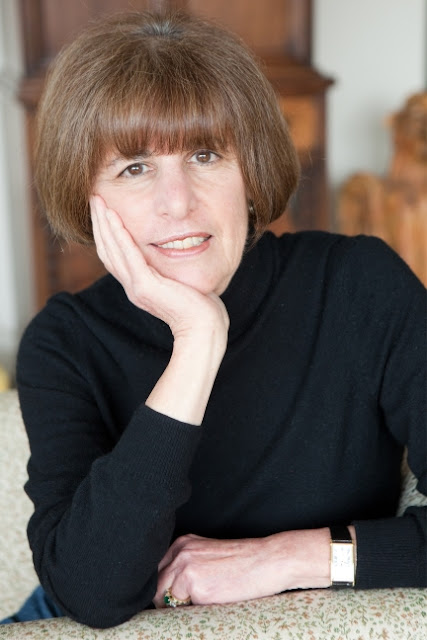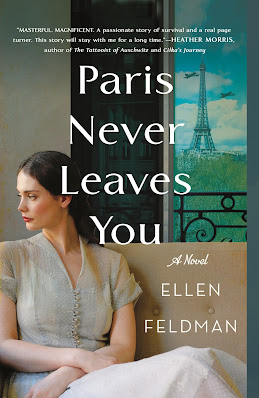New York, 1954
Charlotte spotted the letter as soon as she stepped into
her office. There was no reason it should have caught her
eye. The desk was littered with papers and envelopes.
Stacks of manuscripts and books filled the shelves of
the small cubicle and spilled over onto the two chairs.
Certainly the airmail envelope didn’t make it stand out.
Most of the books she published were American editions
of European works, and a good deal of her mail arrived
in those tissue-thin blue envelopes. The only explanation
for its attracting her attention was that she’d already gone
through her morning mail and the afternoon delivery
hadn’t yet arrived. Perhaps the letter had gone to another
editor by mistake, and he or she had left it on Charlotte’s
9
desk while she was upstairs in the art department. Or
perhaps the mailroom had overlooked it in the morning
sorting.
Gibbon & Field was a prestigious publishing house,
but a certain loucheness lurked behind the scenes. That
was the fault of Horace Field, the publisher. He was too
forgiving, or perhaps only cannily manipulative. She’d had
her earliest inkling of the trait the first Christmas after she’d
come to work at the house. Leaving the office one evening
at the same time, she and Horace had entered the elevator
together to find a young man from the production depart-
ment struggling to balance two or three oversize art books
and several of a more conventional trim size. When he saw
Horace, he colored an unhappy Christmas red.
“I see you’ve taken our ads to heart, Seth,” Horace said.
“‘There’s a book for everyone on your Christmas list.’”
The young man turned a deeper red and shot out of
the elevator as soon as the doors opened. That was un-
usual. The staff usually deferred to Horace getting on and
off elevators, and everywhere else.
“Are you going to take the books out of his salary?”
she’d asked as they’d followed him across the lobby.
“Not on your life.”
“It would teach him a lesson.”
“The only lesson I want to teach him, Charlie, is to
work his tail off for the greater glory of G&F.”
9
Paris Never Leaves You
“And you think encouraging him to walk out the door
with an armful of purloined books will do that?”
“I think the next time he asks for a raise and doesn’t
get it, he’ll remember all the books he’s filched and feel
guilty, or at least compensated. Same with the expense
accounts the editors and travelers turn in. They think
they’re stealing me blind, but a guilty conscience breeds
contrition. Maybe even loyalty. They feel they owe the
house something in return. That’s why I worry about you.
Those expense accounts you file are a travesty. If the other
editors get wind of them, they’ll never forgive you for
spoiling the game.”
Horace’s philosophy permeated the entire publishing
house from the grand larceny of the production depart-
ment, run by a man rumored to have ties to the Mafia,
to the petty pilfering and general slacking off of the mail-
room. That must be why the letter had been delivered
late. And the timing was the only reason she noticed it. It
had nothing to do with a sixth sense, in which she defi-
nitely did not believe.
She sat behind the desk and picked up the envelope.
Her name and the G&F address were written, not typed.
The handwriting wasn’t familiar. There was no return ad-
dress on the upper left-hand corner. She turned it over.
As soon as she saw the name, she realized why she hadn’t
recognized the handwriting. When had they put anything
9
in writing? No, that wasn’t true. He’d written her once,
a year or so after the end of the war. The letter had taken
months to wind its way through the Drancy records and
the various agencies to reach her in New York. She’d
taken solace in that. He didn’t know where she was, and
he was still in Germany. She’d never answered that letter.
The return address on this one was Bogotá, Colombia. So
he’d got out after all. She was glad. She was also relieved.
South America was still a long distance away.
What troubled her was not where he was but that
now he knew where she was. She’d thought she’d been
so careful. Neither her address nor her telephone num-
ber was listed in the book. The people who had tried to
help her settle into her new life—social workers and do-
gooders from various refugee organizations; her colleagues
here and at other publishing houses; Horace Field’s wife,
Hannah—had found the omission foolish and antisocial.
“How do you expect to make a life for yourself in a new
country,” Hannah had asked, “if no one can find you?”
Charlotte hadn’t argued with her. She’d merely gone on
paying the small fee to be unlisted. Gradually Hannah
and everyone else had stopped asking and chalked it up
to what she’d been through. No one, including Hannah,
knew what that was, but that didn’t stop them from spec-
ulating.
She wasn’t much easier to find in the office, though




 3
3



